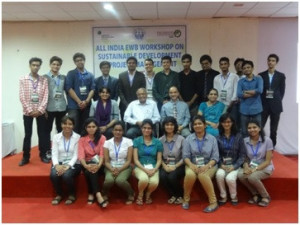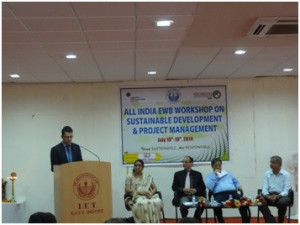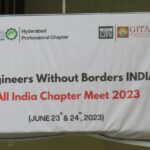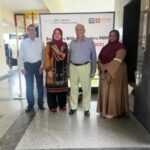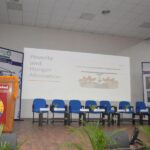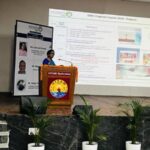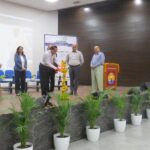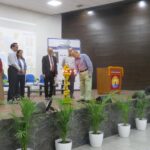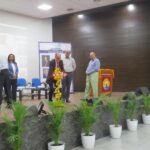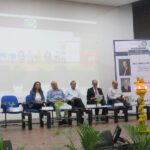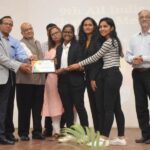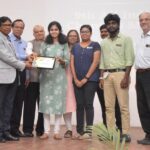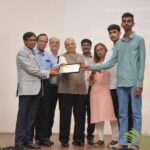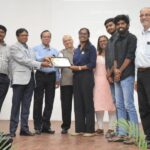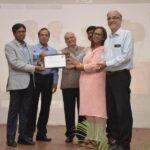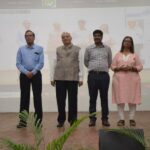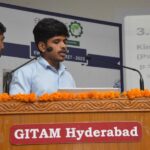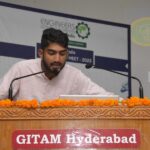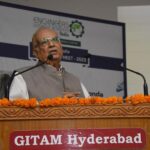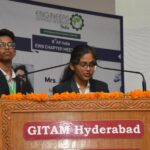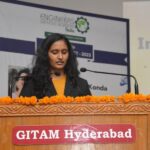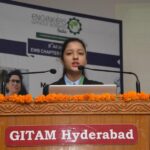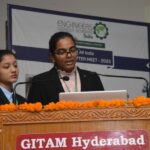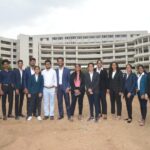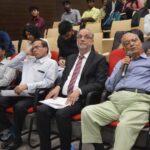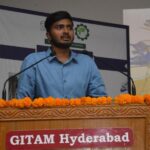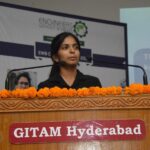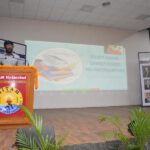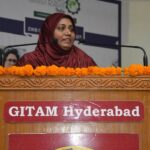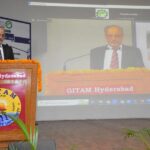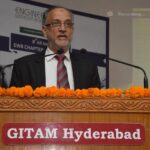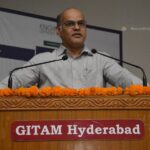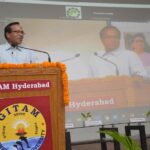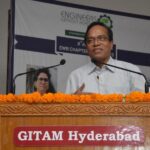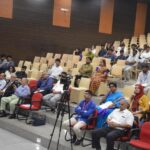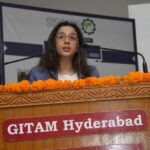The Engineers Without Borders organized All India EWB Workshop on Sustainable Development and Project Management on 18-19th July 2014 at Institute of Engineering and Technology, Devi Ahilya Vishwavidyalaya Indore. The Chief speakers at the workshop were Dr Shaukat Ali Mirza-Chairman EWB India, Dr Ashok Agarwal-Director EWB India, Ms. Aruna Venkatachalam-In country coordinator EWB Australia & Mrs. Mini Bedi- Development Support group, Pune.
The inaugural ceremony of the workshop was graced by Dr D P Singh-Hon Vice Chancellor DAVV, Dr Sanjiv Tokekar- Director IET DAVV, HOD’s & faculties if the Institute. Over 125 students from all over India attended the workshop. Hon Chancellor in his address stressed on the need for sustainability in any development work in order to prevent climate change and save the planet earth.
The first session of the workshop was taken by Dr J S Pangaria who gave his lecture on “Indian Holistic Approach: A Gateway to success & excellence in life”. He focused on importance of time management in life and gave tips to the participants on life management as given in scriptures and mythological books.
The next session was addressed by Dr Shaukat Ali Mirza- Chairman EWB India who presented the “Vision, Mission of EWB India” and asked the students of EWB IET DAVV Chapter to frame the Vision-Mission of their chapter and also for EWB India. He also urged the students to design the Vision Mission of their lives as this is very important to achieve success.
The Third session was coordinated by Ms Aruna Venkatachalam- In country coordinator EWB Australia and Mrs. Mini Bedi- Development Support Group Pune. The session was on “Principles of Development and Sustainable Development”. The speakers focused on the fact that development is a forever going process and it is very important to involve all the sections of the society to participate in this process. The speakers gave live examples of community development through videos and images. They shared a success story of community development of a tribal society in Uttarakhand this was greatly appreciated by the participants.
After these sessions the participants were introduced to “Sustainable Design Challenge” in which they were given a case study named “The Need for organizing self help groups as local governance bodies” and they were asked to give investigate the problems and give solutions to them through a small power point presentations on the 2nd day i.e 19th July 2014. The Participants were able to identify all major problems and gave very thoughtful & practical solutions. The teams were judged by Dr Mirza, Dr Agarwal, Ms Aruna and Mrs. Bedi. The members of the winning team were awarded with winning certificates and memento’s.
After this Ms Aruna explained the “Project Life Cycle Management” of EWB Australia. This session focused on how to initiate-design- implement a project and gave basic tips to participants on how to select a project which has longer relevance. She gave a innovative idea of designing a contact map of local NGO*s-rank them according to resemblance with our
vision-mission and develop partnerships to effectively design & implement a project. In her presentation she displayed the “Floating Toilets Project” initiated in Cambodia through a video.
This session was followed by session named “EWB India project Process” by Dr Ashok Agarwal- Director EWB India. He trained the students on how to write a proper project application form. The important points which must be kept in mind while writing and many do’s & don’ts while writing a form.
The sessions concluded with a discussion on “Social entrepreneurship” which was addressed by Dr Ashok Agarwal, Dr Shaukat Ali Mirza, Ms Aruna Venkatachalam. All the speakers were presented with a memento as a token of respect and thanks. Dr Vrinda Tokekar proposed the vote of thanks.